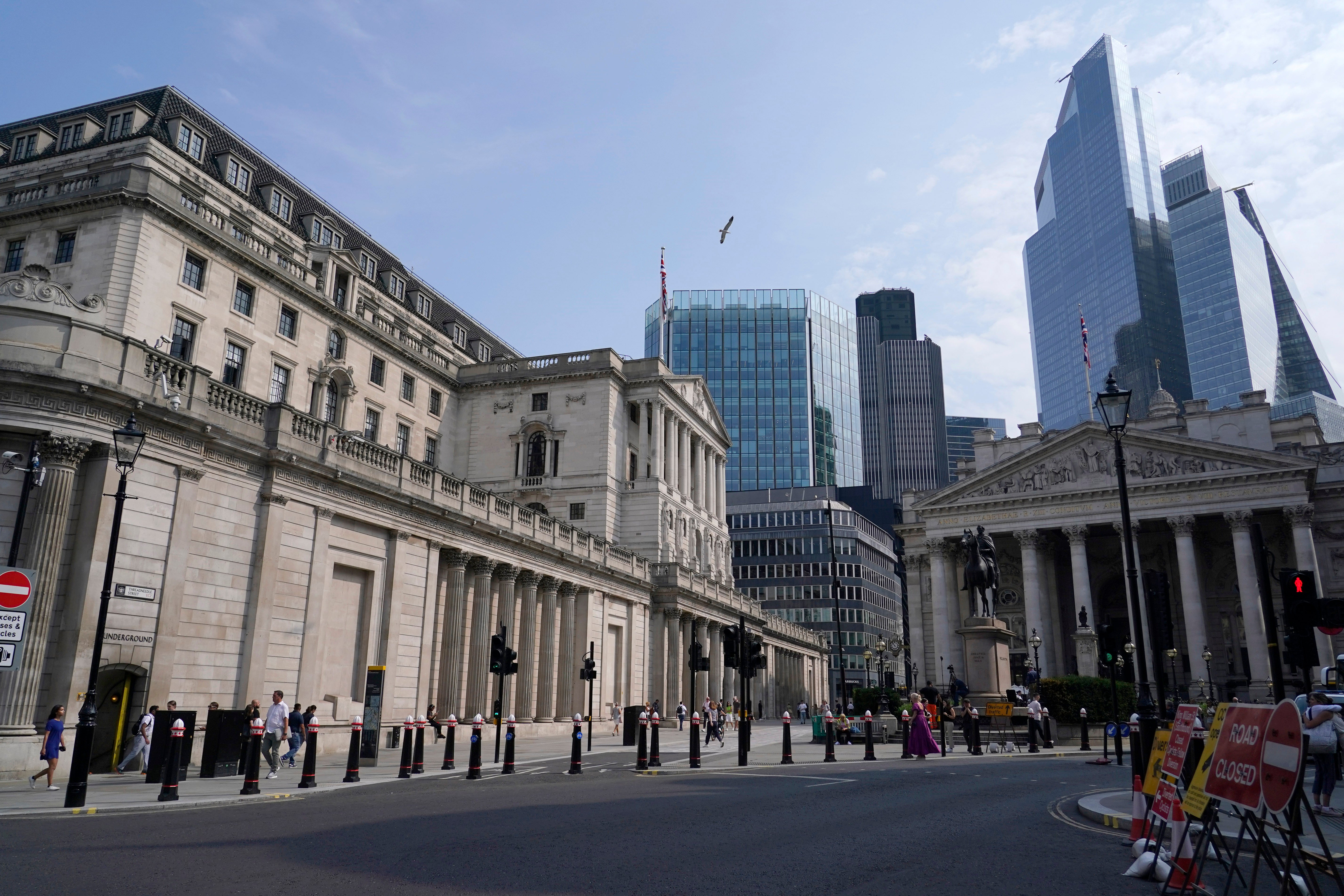UK inflation unexpectedly eases in December, which could reduce pressure in bond markets
Inflation in the U.K. unexpectedly fell in December, a move that will likely fuel pressure on the Bank of England to cut interest rates again next month

Your support helps us to tell the story
From reproductive rights to climate change to Big Tech, The Independent is on the ground when the story is developing. Whether it's investigating the financials of Elon Musk's pro-Trump PAC or producing our latest documentary, 'The A Word', which shines a light on the American women fighting for reproductive rights, we know how important it is to parse out the facts from the messaging.
At such a critical moment in US history, we need reporters on the ground. Your donation allows us to keep sending journalists to speak to both sides of the story.
The Independent is trusted by Americans across the entire political spectrum. And unlike many other quality news outlets, we choose not to lock Americans out of our reporting and analysis with paywalls. We believe quality journalism should be available to everyone, paid for by those who can afford it.
Your support makes all the difference.Inflation in the U.K. unexpectedly fell in December, a move that will likely fuel pressure on the Bank of England to cut interest rates again next month.
The Office for National Statistics said Wednesday that inflation, as measured by the consumer prices index, was 2.5% in the year to December, largely as a result of easing price pressures in the services sector, which accounts for around 80% of the British economy.
That was down from 2.6% the previous month. Economists had expected no change in the annual rate.
Though inflation has fallen, it remains above the Bank of England's target of 2%.
If the Bank of England decides to cut its main interest rate from 4.75%, it could well ease the pressure in British government bond markets, which have been volatile in recent weeks.
The uptick in the interest rate investors are charging the British government to lend money over 10 years hit a 16-year high in recent days, piling pressure on Treasury chief Rachel Reeves to cut spending or raise taxes in order to allay concerns.
Inflation is way down from levels seen a couple of years ago, partly because central banks dramatically increased borrowing costs from near zero during the coronavirus pandemic when prices started to shoot up, first as a result of supply chain issues and then because of Russia’s full-scale invasion of Ukraine, which pushed up energy costs.
As inflation rates have fallen from multidecade highs, central banks have started cutting interest rates, though few, if any, economists think that rates will fall back to the super-low levels that persisted in the years after the global financial crisis of 2008-2009.